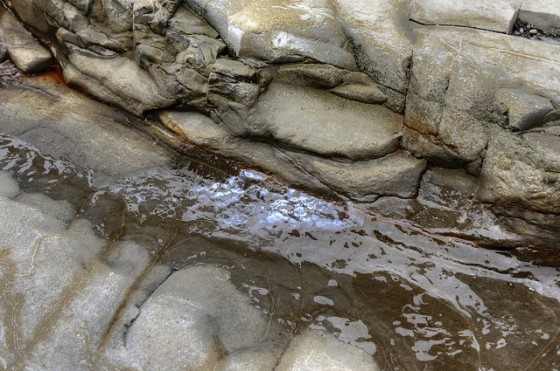Israel Chemicals Ltd. has plans to replace its Mishor Rotem oil shale plant with more viable natural gas.
Initially installed in 1978 as a pilot project, the Mishor Rotem oil shale plant will soon be shut down. Globes reports that Israel Chemicals Ltd. – which purchases the energy generated by approximately half a million tons of oil shale each year – sites a low profit margin as a major cause behind the move.
A newer, cleaner, natural gas plant will take its place. This does not bode well for Israel Energy Initiatives. Though that company has plans to use in-situ technology to extract oil shale reserves in the Adullam district, compared to open-pit mining, ICL has sent a clear message: oil shale is neither clean nor profitable.
Located in the Negev desert, the Mishor Rotem plant was initially established as a Research & Development project funded in part by Israel’s National Infrastructure Ministry. It grew from an initial 0.1MW to a 30MW plant by 1989.
Sources close to ICL told Globes that the power plant is only valuable as an R&D plant and is no longer sufficiently profitable. Most of the energy produced is consumed by the Rotem Amfert factory that churns out phosphate acids and phosphates.
Recent discoveries of additional natural gas reserves in the country – which is cheaper and cleaner – has shifted market dynamics. ICL is expected to close the power plant within the next few months. This move is seen as another in a series of attempts to base its operations on cleaner energy.
This is how sources close to the project explain the shift to Globes:
In effect, the mining of shale oil has no commercial purpose for Israel Chemicals, except as research for the state. Continuation of the activity requires the company to invest capital for the integration of new technologies. The company changed its strategy, pinning its hopes on environmentally friendly sources, such as natural gas, and it wants to transfer the entire plant to the state. Israel Chemicals has no interest in continuing this activity.
How this will impact on IEI’s controversial ambitions further north remains to be seen. In-situ technology has not received the commercial go-ahead in Colorado, where the biggest oil shale reserves are thought to offer a viable antidote to Arab oil dependence.
IEI is part of a larger conglomerate attempting to test this technology in Israel’s less rigid legislative environment, but has received significant opposition from local residents and environmental groups. ICL’s confirmation that natural gas is cheaper and more widely available may just swing the Adullam Oil Shale pendulum in favor of the people who live there.
Existing employees will be transferred to other ICL units.
:: Globes
More on Israel’s Oil Shale:
Interview With American Oil Shale Expert Jeremy Boak
NGO Takes IEI/Genie To Israel’s High Court
Shale Company Responds to David de Rothschild’s Oil Shale Concerns
image via RGB.




